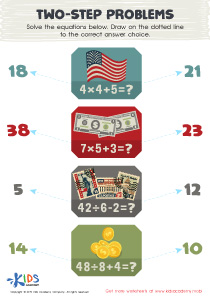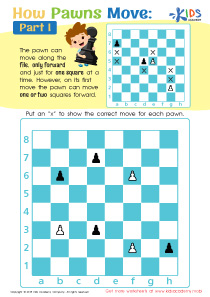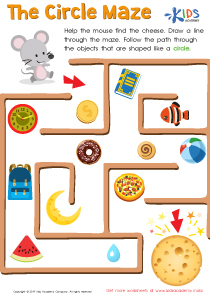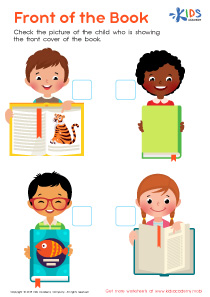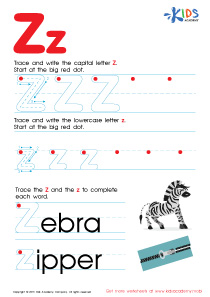1,2, and 3 Quizzes for Ages 3-5
3 results
3 filtered results
Clear all filters3 filtered results
-
From - To
Introducing our captivating interactive assessment quizzes, meticulously designed for children aged 3-5! Immerse your little ones in the foundational world of numbers with our focus on 1,2, and 3, tailored specifically for their age group. These engaging quizzes not only check your child's understanding of these essential numerical concepts but also offer constructive feedback to reinforce their learning journey. With vibrant graphics and intuitive gameplay, our quizzes make learning about 1,2, and 3 an enjoyable adventure for preschoolers. Perfect for fostering early numeracy skills, our assessments ensure a fun-filled, educational experience for ages 3-5. Start exploring the basics of numbers today!
In the burgeoning stages of childhood development, particularly for children aged 3-5, the incorporation of engaging educational tools is pivotal. Among these tools, interactive quizzes focusing on fundamental concepts such as numbers 1, 2, and 3 have proven to be exceptionally beneficial. These quizzes are not just about learning to count; they are intricately designed to enhance cognitive skills, improve memory retention, and instill a love for learning from an early age.
The beauty of interactive quizzes on numbers 1, 2, and 3 for ages 3-5 lies in their ability to tailor the learning experience to the individual needs of each child. Through vibrant animations, captivating sound effects, and a user-friendly interface, children are invited into a world where learning becomes as exciting as play. This sensory-rich environment is key to keeping their attention focused, making the absorption of new concepts much smoother and more enjoyable.
One of the primary advantages of using these quizzes is the way they introduce young learners to the basics of mathematics in a gentle and intuitive manner. By beginning with numbers 1, 2, and 3, children grasp the fundamental building blocks of math without feeling overwhelmed. This early exposure to numerical concepts lays a solid foundation for future mathematical learning, encouraging a positive attitude towards the subject that can last a lifetime.
Moreover, the interactive nature of the quizzes fosters an environment where children can learn at their own pace. The instant feedback provided after each question allows them to understand their mistakes and learn from them, promoting a growth mindset from an early age. This iterative learning process is crucial for building resilience and adaptability, qualities that are beneficial far beyond the mathematics classroom.
Social skills, too, are subtly honed through these quizzes. In a classroom setting, they can be used as a collaborative tool where children work together to solve problems, thereby enhancing teamwork and communication skills. Even in a home setting, discussing the quizzes with parents or siblings can provide a valuable opportunity for verbal expression and listening, further developing their interpersonal skills.
For parents and educators, the quizzes offer an easily accessible way to monitor progress. They can identify areas where a child might be struggling and tailor subsequent learning experiences to address these gaps. This customized approach ensures that each child receives the support they need to thrive, making learning a positive and affirming experience.
Furthermore, the simplicity of the concepts of numbers 1, 2, and 3 ensures that the quizzes are not intimidating for children. They serve as an encouraging introduction to the world of learning, where success is celebrated, and mistakes are seen as opportunities for growth. By starting with these simple numbers, children build confidence in their abilities, a trait that is crucial for their overall academic journey.
In conclusion, interactive quizzes on numbers 1, 2, and 3 for ages 3-5 are much more than just educational tools; they are a means of fostering a lifelong love for learning. Through these quizzes, children not only learn essential mathematical concepts but also develop critical thinking, social skills, and a resilient mindset. As such, they represent an invaluable resource for parents and educators in the quest to provide children with the best possible start in their educational journey.

